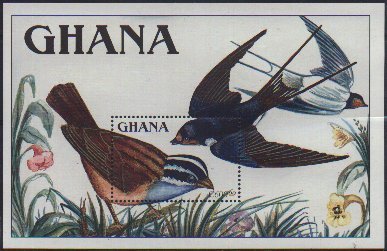An article by Bird Studies Canada biologist Jon McCracken examines substantial population declines for ‘aerial insectivores ‘ – birds that specialize on feeding on flying insects. The alarming trend, which appears to be most pronounced in Canada, has been revealed by the analysis of results from several bird monitoring programs, including the newly released Atlas of the Breeding Birds of Ontario, 2001-2005 and the North American Breeding Bird Survey.
In the Winter 2008 issue of BirdWatch Canada, McCracken outlines some of the possible reasons why birds such as swifts Apus apus, Whip-poor-wills Caprimulgus vociferus (A North American Nightjar), nighthawks Chordeiles minor, swallows, martins, and flycatchers have been severely diminishing over the last 40 years, some by as much as 70%. For example, the population of Whip-poor-will in Ontario has contracted to half of what it was 20 years ago.
There are many possible causes for these declines, including lack of nest sites, habitat changes, and even natural variability. But these explanations only tell part of the story, according to McCracken. ‘Potential changes in the seasonal supply of flying insects are worth investigating, ‘he says. ‘If significant changes are occurring in insect populations, then this is a particularly serious cause for concern, not only for the birds and bats that feed on them, but also for us. Since so many species of flying insects are important pollinators, there could be large ecological and socio-economic ramifications. ‘
Further scientific research is urgently needed to fully appreciate the extent of the phenomenon and to identify the underlying causes.
To this end, Bird Studies Canada (BSC) Chief Scientist Dr. Phil Taylor (on secondment from Acadia University) is working with BSC staff and other researchers on the problem. ‘The magnitude and speed of the declines for some species is quite disturbing, ‘Dr. Taylor notes. ‘It is vital to narrow down the possible reasons as soon as we can. ‘
Bird Studies Canada administers national, regional, and international research and monitoring programs that advance the understanding, appreciation, and conservation of wild birds and their habitats.
BSC is Canada’s national body for bird conservation, and is a non-governmental charitable organization.
The full article can be read at
http://www.bsc-eoc.org/download/BWCwi08.pdf

- Log in to post comments
